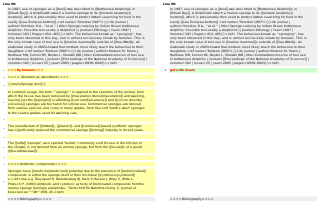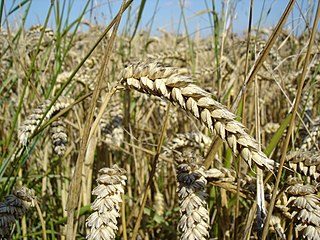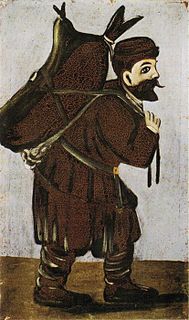 W
WA comparison of apples and oranges occurs when two items or groups of items are compared that cannot be practically compared.
 W
WA breadcrumb or breadcrumb trail is a graphical control element frequently used as a navigational aid in user interfaces and on web pages. It allows users to keep track and maintain awareness of their locations within programs, documents, or websites.
 W
WChampagne socialist is a political term originating in the United Kingdom. It is a popular epithet that implies a degree of hypocrisy, and it is closely related to the concept of the "liberal elite". The phrase is used to describe self-identified socialists whose luxurious upper middle-class or "preppy" lifestyles, metonymically including consumption of champagne, are ostensibly in conflict with their political beliefs as understood by their critics.
 W
W"Chew the fat" or "chew the rag" are English expressions for gossiping or making friendly small talk, or a long and informal conversation with someone.
 W
WCream skimming is a pejorative conceptual metaphor used to refer to the perceived business practice of a company providing a product or a service to only the high-value or low-cost customers of that product or service, while disregarding clients that are less profitable for the company.
 W
WA "cup of coffee" is a North American sports idiom for a short time spent by a minor league player at the major league level. The idea behind the term is that the player was only in the big leagues long enough to have a cup of coffee before being returned to the minors. The term originated in baseball and is extensively used in ice hockey, both of whose professional leagues utilize extensive farm systems; it is rarely used in basketball or American football since neither the NBA nor NFL have implemented a true farm system.
 W
WIn Internet slang, a troll is a person who starts flame wars or intentionally upsets people on the Internet. This is typically done by posting inflammatory and digressive, extraneous, or off-topic messages in an online community, with the intent of provoking readers into displaying emotional responses and normalizing tangential discussion. This is typically for the troll's amusement, or to achieve a specific result such as disrupting a rival's online activities or manipulating a political process.
 W
WEating crow is a colloquial idiom, used in some English-speaking countries, that means humiliation by admitting having been proven wrong after taking a strong position. The crow is a carrion-eater that is presumably repulsive to eat in the same way that being proven wrong might be emotionally hard to swallow. The exact origin of the idiom is unknown, but it probably began with an American story published around 1850 about a dim-witted New York farmer. Eating crow is of a family of idioms having to do with eating and being proven incorrect, such as to "eat dirt" and to "eat your hat", all probably originating from "to eat one's words", which first appears in print in 1571 in one of John Calvin's tracts, on Psalm 62: "God eateth not his words when he hath once spoken".
 W
WFatted calf is a metaphor or symbol of festive celebration and rejoicing for someone's long-awaited return. It derives from the Parable of the Prodigal Son in the New Testament. In biblical times, people would often keep at least one piece of livestock that was fed a special diet to fatten it up, thus making it more flavorsome when prepared as a meal. Slaughtering this livestock was to be done on rare and special occasions. Thus when the prodigal son returns, the father "kills the fatted calf" to show that the celebration is out of the ordinary.
 W
WThe Parable of the Grain of Wheat is an allegory on resurrection, sacrifice, and ego death, given by Jesus in the New Testament.
 W
WHeinz 57 is a synecdoche of the historical advertising slogan "57 Varieties" by the H. J. Heinz Company located in Pittsburgh, Pennsylvania, United States. It was developed from the marketing campaign that told consumers about the numerous pickle products available from the Heinz company.
 W
WMilo tin is a Malaysian pejorative used to describe unsafe or cheaply made vehicles. It is comparable to the slang term, 'deathtrap'.
 W
W"The Moon is made of green cheese" is a statement referring to a fanciful belief that the Moon is composed of cheese. In its original formulation as a proverb and metaphor for credulity with roots in fable, this refers to the perception of a simpleton who sees a reflection of the Moon in water and mistakes it for a round cheese wheel. It is widespread as a folkloric motif among many of the world's cultures, and the notion has also found its way into children's folklore and modern popular culture.
 W
WMystery meat navigation is a form of web navigation user interface whereby the target of each link is not visible until the user points their cursor at it. Such interfaces lack a user-centered design, emphasizing aesthetic appearance, white space, and the concealment of relevant information over basic practicality and functionality. The term was coined in 1998 by Vincent Flanders, author and designer of the website Web Pages That Suck.
 W
WNew Wine into Old Wineskins is a parable of Jesus. It is found at Matthew 9:14-17, Mark 2:18-22 and Luke 5:33-39.
 W
WThe Parable of the Great Banquet or the Wedding Feast or the Marriage of the King's Son is a parable told by Jesus in the New Testament, found in Matthew 22:1–14 and Luke 14:15–24.
 W
WThe Parable of the Wedding Feast is one of the parables of Jesus and appears in the New Testament in Luke 14:7-14. It directly precedes the Parable of the Great Banquet in Luke 14:15-24. In Matthew's Gospel, the parallel passage to Luke's Parable of the Great Banquet is also set as a wedding feast.
 W
WPear-shaped is a metaphorical term with several meanings, all in reference to the shape of a (European) pear, i.e. tapering towards the top.
 W
WPork barrel is a metaphor for the appropriation of government spending for localized projects secured solely or primarily to bring money to a representative's district. The usage originated in American English. Scholars use it as a technical term regarding legislative control of local appropriations. In election campaigns, the term is used in derogatory fashion to attack opponents. One of the most explicit definitions of the “pork barrel” is given by Sharma (2017): “The term “pork‐barrel politics” refers to instances in which ruling parties channel public money to particular constituencies based on political considerations, at the expense of broader public interests”.
 W
WRice burner is a pejorative term originally applied to Japanese motorcycles and which later expanded to include Japanese cars or any East Asian-made vehicles. Variations include rice rocket, referring most often to Japanese superbikes, rice machine, rice grinder or simply ricer.
 W
WA salad bowl or tossed salad is a metaphor for the way a multicultural society can integrate different cultures while maintaining their separate identities, contrasting with a melting pot, which emphasizes the combination of the parts into a single whole. In Canada this concept is more commonly known as the cultural mosaic or "tossed salad".
 W
WWhen life gives you lemons, make lemonade is a proverbial phrase used to encourage optimism and a positive can-do attitude in the face of adversity or misfortune. Lemons suggest sourness or difficulty in life; making lemonade is turning them into something positive or desirable.